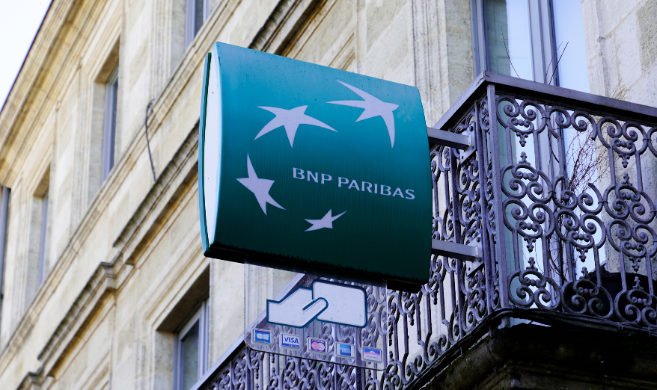Since the invasion of Ukraine in 2022, there have been regular media reports on the sanctions imposed on Russia. Economic sanctions – including arms embargoes and travel and trade restrictions – have been regularly used since World War II and have become indispensable foreign policy tools. And since the late 1980s, there has been a shift towards imposing purely financial sanctions, which involve freezing assets and investments.
These 'smart' sanctions aim to target key entities – such as decision-makers and major industries – to discourage the sanctioned country from breaking international law or acting aggressively, without unduly affecting civilians. However, as smart sanctions only cover some transactions with the target country, financial institutions must scrutinize business opportunities to ensure they remain legal. Failing to comply can result in sizable penalties. In 2015 for example, BNP Paribas was fined US$8.9bn for violating sanctions against Sudan, Cuba, and Iran.
How sanctions impact lending
We wanted to understand how banks adapt lending in light of financial sanctions. A given bank could decide to withdraw all business from a sanctioned country – but that would be an extreme position. Sanctions will impose extra compliance costs on the bank, as it must fulfill reporting requirements and undertake due diligence checks to ensure its transactions are legal. The bank will also have to factor in the litigation costs and the reputational risk involved if its transactions are later found to be illegal. We can assume that a bank's decision to lend money to sanctioned countries will depend on the trade-off between the expected profits and these sanctions-related costs. However, the cost of compliance and the risks associated with non-compliance vary significantly across countries. In Germany for example, labor costs are high, so hiring people to carry out due diligence is expensive. Strong data protection laws in Germany also increase the costs of carrying out checks. In other countries, those costs may be lower, or the government may not have the resources to enforce compliance. Do those differences affect how banks respond to sanctions?
Financial sanctions can distort global banking competition, even if they are universally adopted, due to variations in enforcement and compliance across countries.
Location, location, location
We looked at empirical data collected by the German Central Bank (Deutsche Bundesbank) about the positions of German banks worldwide. The data show how much each bank in Germany was lending in particular countries from 2002 to 2015. Importantly, German banks are also required to record how much their foreign affiliates (branches and subsidiaries outside Germany) are lending in each country.
This data shows clear differences in how German banks in different countries responded to sanctions. Banks in Germany strongly reduced their positions in countries targeted by sanctions. But their foreign affiliates, on average, increased lending relative to their parent banks at home and, in some cases, also in absolute terms.
The importance of the Financial Action Task Force
There are variations in behavior between affiliates in different countries, so we needed a way to categorize countries according to the sanctions-related costs they impose, which are related to the quality of institutions and anti-crime policies.
The Financial Action Task Force (FATF) is an intergovernmental organization that sets standards for the integrity of the international financial system. Our analysis showed that German bank affiliates outside the FATF increased their positions in the targeted country by an average of 95% relative to German banks inside the FATF. That figure rises to 151% in countries listed as noncompliant with FATF rules.
The fact that banks in Germany and within the FATF strongly decreased their lending to sanctioned countries and that banks outside both strongly increased lending suggests that there is a trade-off between an investment opportunity, the risk of litigation, and the costs of due diligence.
Leveling the playing field
The key takeaway from this is that, regardless of whether it is the litigation risks or compliance costs that ultimately drive the decision to lend (or not), you don't have a level playing field.
Regulators work together to harmonize rules and financial standards across countries, in order to curb regulatory distortions to international bank competition. However, our analysis of financial sanctions and cross-border lending shows that harmonizing the rules and regulations is not enough to guarantee a level playing field for bank competition. It is also important to harmonize the implementation of – and compliance with – financial sanctions, otherwise they distort competition.
That is a very important conclusion because it is probably also valid beyond our setting of sanctions, in the many other contexts affected by international regulations. That is true whenever you have a market or an industry that is globally integrated; multinational banks operating worldwide are just one example.






